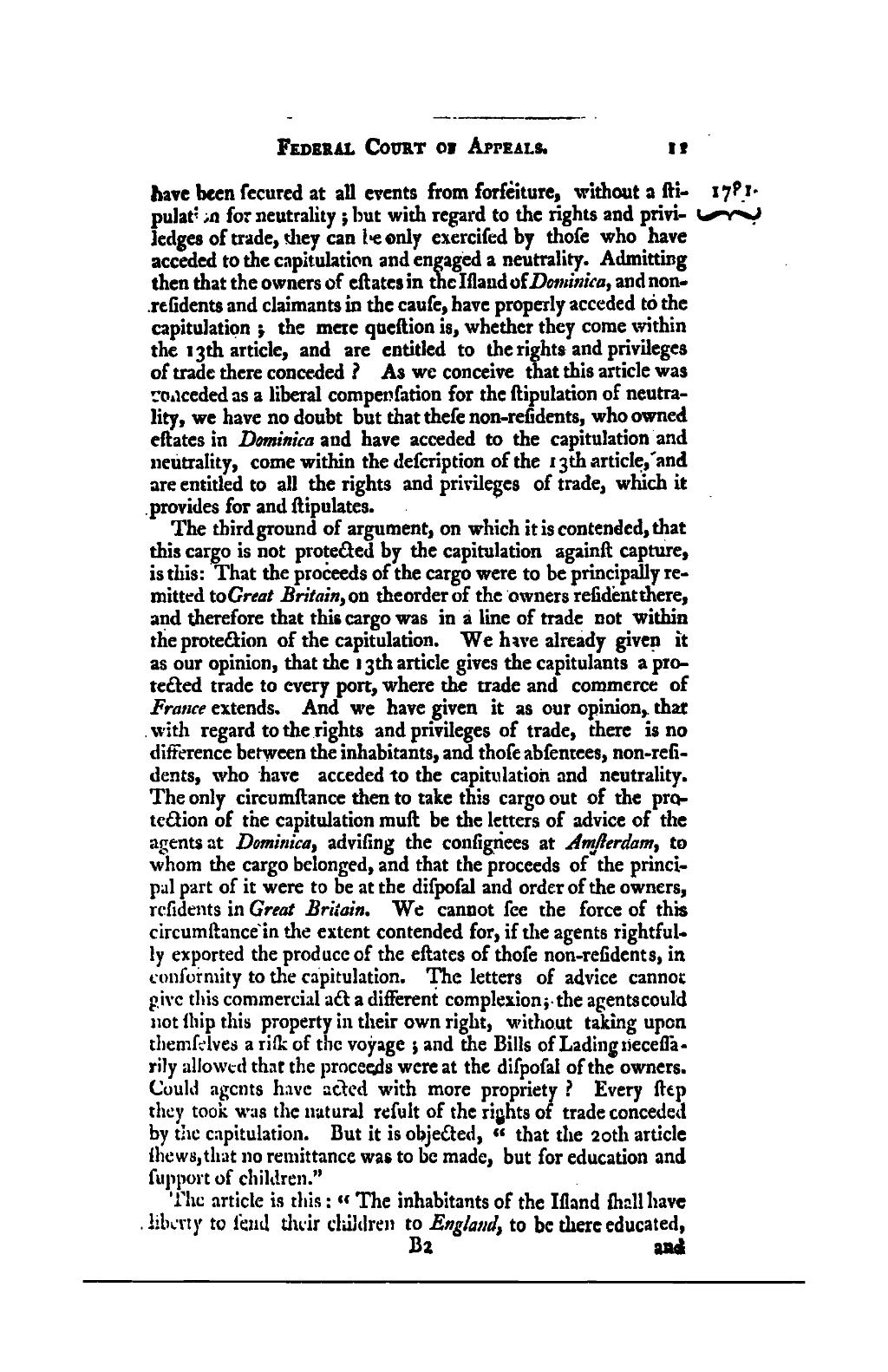1781.
have been secured at all events from forfeiture, without a stipulation for neutrality; but with regard to the rights and priviledges of trade, they can be only exercised by those who have acceded to the capitulation and engaged a neutrality. Admitting then that the owners of estates in the Island of Dominica, and non-residents and claimants in the cause, have properly acceded to the capitulation; the mere question is, whether they come within the 13th article, and are entitled to the rights and privileges of trade there conceded? As we conceive that this article was conceded as a liberal compensation for the stipulation of neutrality, we have no doubt but that these non-residents, who owned estates in Dominica and have acceded to the capitulation and neutrality, come within the description of the 13th article and are entitled to all the rights and privileges of trade, which it provides for and stipulates.
The third ground of argument, on which it is contended, that this cargo is not protected by the capitulation against capture, is this: That the proceeds of the cargo were to be principally remitted to Great Britain, on the order of the owners resident there, and therefore that this cargo was in a line of trade not within the protection of the capitulation. We have already given it as our opinion, that the 13th article gives the capitulants a protected trade to every port, where the trade and commerce of France extends. And we have given it as our opinion, that with regard to the rights and privileges of trade, there is no difference between the inhabitants, and those absentees, non-residents, who have acceded to the capitulation and neutrality. The only circumstance then to take this cargo out of the protection of the capitulation must be the letters of advice of the agents at Dominica, advising the consignees at Amsterdam, to whom the cargo belonged, and that the proceeds of the principal part of it were to be at the disposal and order of the owners, residents in Great Britain. We cannot see the force of this circumstance in the extent contended for, if the agents rightfully exported the produce of the estates of those non-residents, in conformity to the capitulation. The letters of advice cannot give this commercial act a different complexion; the agents could not ship this property in their own right, without taking upon themselves a risk of the voyage; and the Bills of Lading necessarily allowed that the proceeds were at the disposal of the owners. Could agents have acted with more propriety? Every step they took was the natural result of the rights of trade conceded by the capitulation. But it is objected, “that the 20th article shews, that no remittance was to be made, but for education and support of children.”
The article is this: “The inhabitants of the Island shall have liberty to send their children to England, to be there educated,
